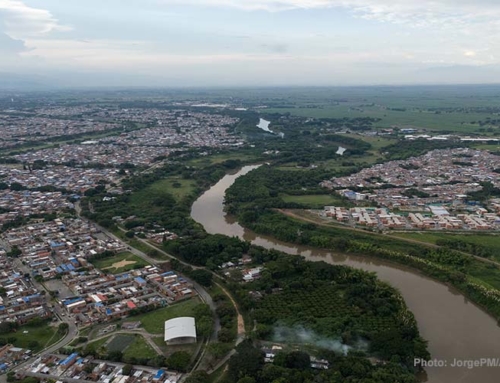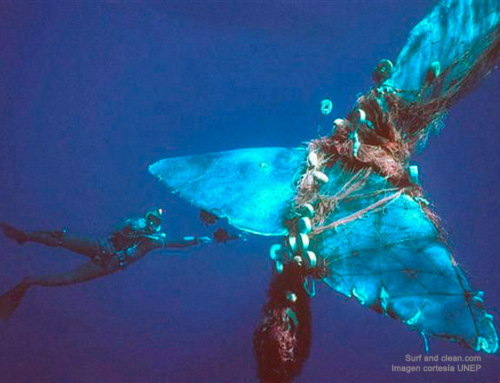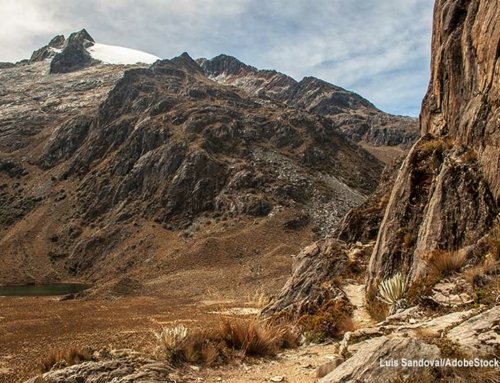The lights turned off on the stage of the COP24. Without detracting from the selfless and continuous work of Mrs. Patricia Espinoza, Executive Secretary of the United Nations Framework Convention on Climate Change, and the great efforts that the UN has been developing in climate and environmental matters since 1972, the 24th Conference of the Parties It was one of the most secretive and least newsworthy meetings we’ve seen.
Perhaps the chosen place and date contributed to the lack of media coverage and the interest on the part of the public during the event, which only rebounded, in part, after the summit was over. 95% of people do not know what a COP is and COP24 did not help to improve the general perception about these important climate conferences.
Regarding the place, it could be foreseen that Poland would not be very active in terms of the conference or the climate agreements, as it is Europe’s main coal producer, and for the number of times it has shown signs of not being in ability to abandon their main energy resource. This does not include some other environmental “sins” that he has to his credit, such as the deforestation of the last virgin forest in Europe.
The chosen date, between the 3rd and the 14th of December, is a period in which many people are already occupied with vacations and holidays at the end of the year. Perhaps that is why the COP24 was not so lucky, mediately speaking, as the COP23, Bonn-Fiji, between November 6 and 17, 2017.
It should be recalled that Fiji, unlike Poland, is very interested in the Paris Agreement coming to fruition, as it is an island very vulnerable to the increase in marine waters. The joy and enthusiasm shown by Mr. Frank Bainimarama, Fijian Prime Minister and President of COP23, were notorious throughout the year 2017, something that did not happen in 2018 with the Polish country.
Several times we have said that we must not attend to what the participants of the COPs say during the two weeks of the conferences but look at what they do during the year. Throughout time it has been shown that one thing is theory and practice is quite another.
Another pattern that we have observed is that when there are five or six years left, for example, to initiate a climate action, all the parties show their approval and promise to comply with the agreements settled in a COP. But, as time goes by, the promises of some countries, usually the most influential ones, become blurred until the moment of materializing the acquired commitments. There are many examples in this almost quarter of a century of COP life.
Once the deadline expires, these actors try to gain time and have often succeeded in deferring relevant issues for the following year. When there is no more space for postponements, their representatives, without blushing, refuse to comply with the commitments made. The main exponent of this was the Kyoto Protocol, which was emerging as one of the most important and hopeful documents of humanity to regulate anthropogenic activities, capable of curbing climate change, but which eventually passed into the wastebasket of history.
The controversy in Katowice was not about the Paris Agreement directly, but about the IPCC document, the Intergovernmental Panel on Climate Change, which presented its Fifth Assessment Report in October this year, the main objective of which is to limit the rise of temperatures to 1.5 degrees centigrade from its pre-industrial level. This goal, according to the report, “will require unprecedented changes” at a social and global level, due to the seriousness of the situation on the planet, due to the sustained increase in global temperature, and all its foreseeable consequences.
The IPCC report has since been announced as an important contribution to the Katowice negotiations. However, it became the main obstacle of the conference.
An oil quartet made up of the United States, Russia, Saudi Arabia and Kuwait did not welcome the report. The United States argued that welcoming him meant accepting it. President Trump was blunt in expressing that they did not agree with the IPCC report, nor did he believe in its content. The representative of Saudi Arabia went further and dared to say, behind the scenes, that “the Paris Agreement has died”.
Finally, in the final UN communiqué we read: “Governments have adopted a robust set of guidelines to implement the historic Paris Agreement on climate change that was approved in 2015. The implementation of the agreement will benefit all people, but especially the most vulnerable.
The Katowice Climate Package has been agreed, which is designed to operationalize the climate change regime contained in the Paris Agreement. Under the auspices of the United Nations Secretariat for Climate Change, this set of guidelines will promote international cooperation and will produce greater ambition in climate action.
Thanks to the guidelines, countries will be able to have confidence that all of them are playing their rightful role in the face of the climate change challenge. “
However, the statement acknowledges that: “Unfortunately, in the end, the differences have not been overcome.” Worrying corollary with only two years until the entry into force of the Paris Agreement.
WWF Spain summarized what happened in Poland as follows: “the world leaders came to Katowice with the task of responding to the latest climate science data, which has made it very clear that we only have 12 years to reduce emissions by half and avoid catastrophic global warming. Progress has been made, but what we have seen in Poland reveals a lack of fundamental understanding of the current climate urgency on the part of some countries. Everyone’s future is at stake. We need all countries to commit to increasing climate ambition by 2020.”
Some notes on the COP25
Chile has had the honor of being the host of the COP25 in 2019. In the South American country, a quarter of a century of the most important Climate Conference in the world will be stamped.
Is a good opportunity to review the communication and dissemination strategies of the COPs and put them into practice at COP25.
We think that more than 90% of people do not know what a COP is and on COP24 we believe that 99% of people have not heard about its existence or its conclusions. The COP and environmental issues are perceived by the general public as boring topics.
It is important to involve people in the coming years, more when they are seen as a clash of constellations between supporters of fossil fuels and those who are willing to move forward with clean energy.
And why dont we think about the COP brand?
To change the perception that people have about POPs, the “COP brand” concept could be introduced. This would bring the benefit of improving the image of the most important conferences in the world. An aggressive marketing plan focused on the COP brand would help spread the problems that loom over the planet and could add thousands of collaborators and activists.
The efficiency of the COP brand, always under the umbrella of the UN, would be noticed immediately. Through the global promotion of the COP brand, it could enter all areas such as cultural, social, scientific and technological. Universities could have a leading role in all this if the message comes to them clearly and convincingly.
Be good the opportunity the 25th birthday of the COP to start implementing a new strategy. Chile could become a great media party to spread the COP25 and the fight against climate change. We can copy the success of the Showbiz and use it for the benefit of the planet.
If we involve the majority of the inhabitants of Mother Earth, together we can defeat climate change.
Sandor Alejandro Gerendas-Kiss







Leave A Comment